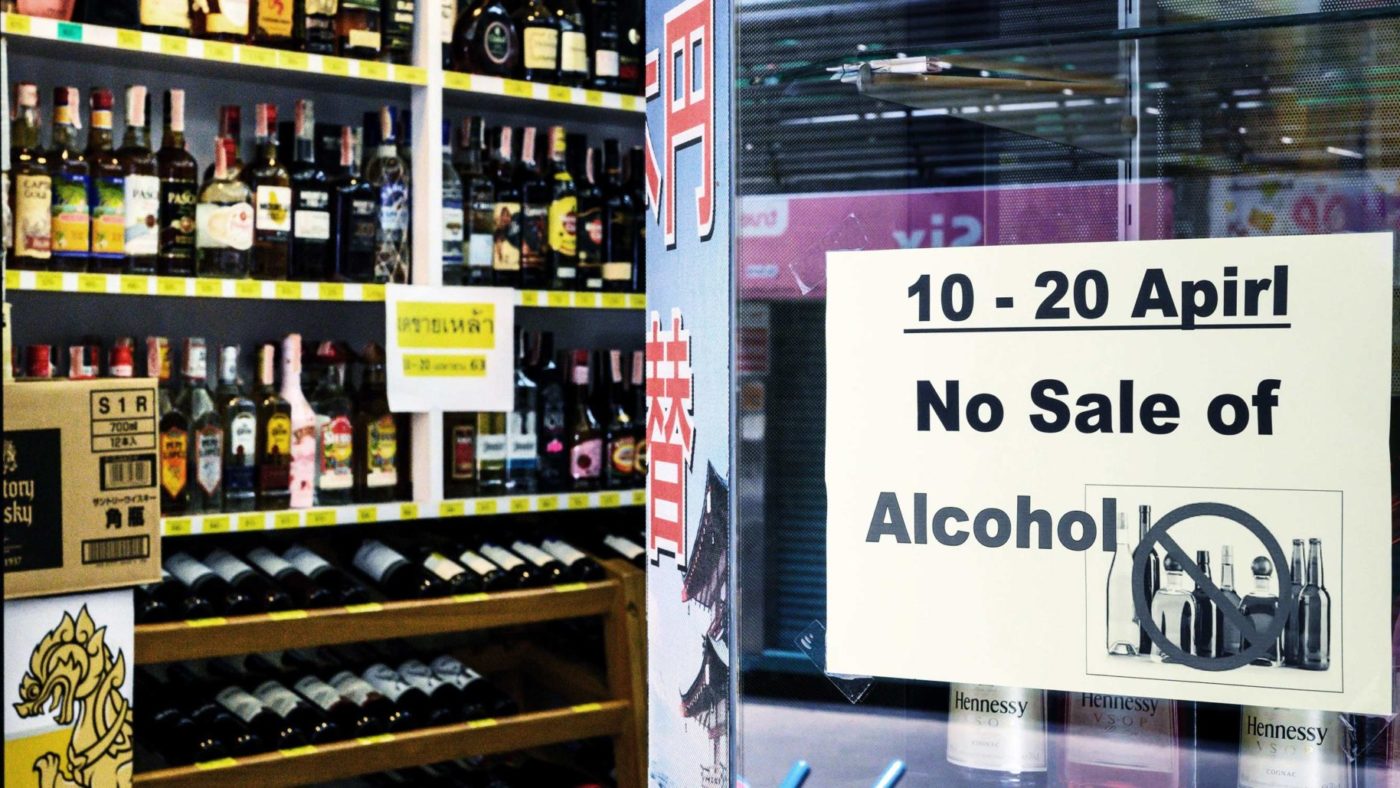When consumers around the world realised the extent of the Covid-19 pandemic, many rushed to stock up on essentials in preparation for a long period of enforced isolation. Like other products, alcohol sales shot up and it wasn’t long before ‘public health’ campaigners were using the pandemic as an excuse to push for heavy regulation, including prohibition.
The World Health Organisation encouraged governments to restrict alcohol sales during lockdown and claimed that drinking alcohol in any quantity increases the risk of contracting Covid-19. This implausible claim remains unproven and the idea that there is ‘no safe level’ of alcohol consumption does not sit easily with a mountain of evidence showing moderate drinkers to be less likely to die prematurely than lifelong abstainers.
In Britain, off-trade alcohol sales rose by 31% in March and the public was warned that problem drinking was ‘soaring’. Hard data on the lockdown’s impact on alcoholics is not yet available, but a 31% rise in off-trade sales should be measured against a decline in on-trade sales of almost 100%.
With stockpiling tapering off, the evidence points to an overall decline in alcohol consumption in the UK and elsewhere. We need look no further than global alcohol companies’ dismal financial results from the first quarter of 2020 to see that overall sales are down by at least 10-15%. The drinks industry doesn’t expect to recover until 2024. Many restaurants, bars and nightclubs will never recover.
There is little to suggest that rampant alcoholism is a side-effect of the pandemic. Consumption data from the US, Canada, and UK are remarkably similar, with large majorities drinking the same as before, or less. Indeed, surprisingly significant numbers have stopped drinking entirely.
Nevertheless, many countries have clamped down on drinking under the cover of tackling the coronavirus. Thailand, the Philippines, Greenland, Argentina, India, Panama and Zimbabwe have all introduced forms of prohibition in the course of their lockdowns. Add the Islamic countries which have long banned the sale of alcohol and a quarter of the world’s population were living under prohibition last month.
No country has gone further than South Africa where the sale of alcohol, tobacco and e-cigarettes is banned, alongside a baffling list of other products, including rotisserie chickens and flip-flops. The South African government claims that the booze ban has led to fewer hospital admissions, traffic accidents and murders, although similar trends have been seen in the rest of the locked-down world. Kenya, the UK, the United States, Canada, New Zealand, and Australia – to name a few – have all seen dramatic drops in hospital admissions and crime without having to resort to prohibition. Not allowing people to leave the house seems to be enough to reduce accidents, injuries, car crashes and crime.
Domestic violence is one of the few types of crime to have risen under lockdown, and dry South Africa is no exception. Calls to its domestic violence hotline doubled in March alone. The government claims that domestic violence would have worsened further if alcohol had been available, but countries such as Spain have experienced much smaller increases in domestic violence while permitting the sale of drink.
Students of history will not be surprised that certain criminal activities have soared under South African prohibition. Fully stocked liquor shops have been sitting ducks for looters and armed robbers while criminal gangs have been bringing contraband alcohol over the country’s notoriously porous borders.
South Africa’s Revenue Service commissioner has admitted that prohibition is costing the government much-needed tax revenue and has set back ‘many times over’ the country’s previous advances in combatting smuggling and illicit trade. In April alone, the country lost over 1.7 billion rand ($93 million) in sin tax revenue.
Bootleg liquor killed many thousands of Americans in the 1920s. In recent weeks, history has been repeating itself, with moonshine killing unwitting drinkers in South Africa, Iran and Mexico thanks to lockdown legislation.
A century after the USA began its disastrous experiment with alcohol prohibition, it seems that every generation has to learn the lessons for itself. Prohibition does not prohibit – drinkers keep drinking and smokers keep smoking – but it enriches criminals, robs governments of tax revenue, corrupts institutions and puts people out of work.
Some things never change. The law of unintended consequences is inviolable.
Click here to subscribe to our daily briefing – the best pieces from CapX and across the web.
CapX depends on the generosity of its readers. If you value what we do, please consider making a donation.


